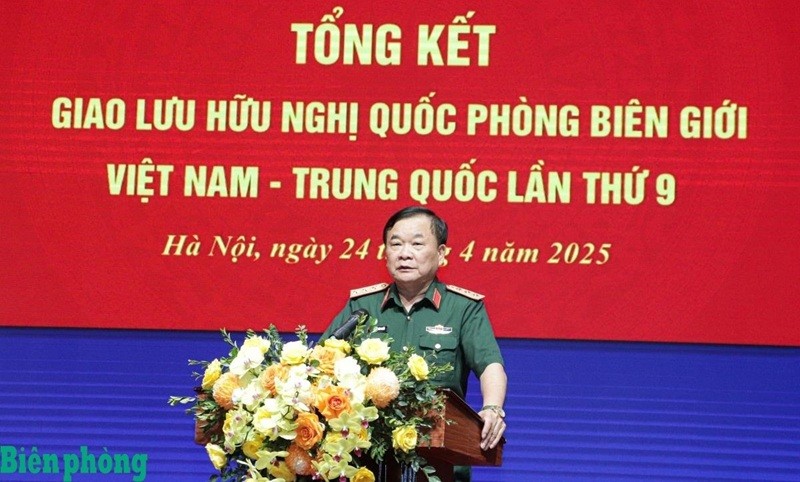Political Will: Crucial for a South China Sea Code of Conduct
| Vietnam hails Germany - ASEAN Parliamentary Friendship Group’s performance | |
| Vietnamese Language - Anchor to Connect Overseas Vietnamese to Their Roots |
Within the framework of the 16th International Conference on the South China Sea, delegates have spent considerable time discussing the nature of the current multipolar order, whether it is a "hot peace," "cold war," or "peaceful coexistence." What is your perspective on this matter?
Many people question whether we are truly moving towards a multipolar world. I believe that our world is becoming much more complex and is moving towards a complex multipolar order. The international situation is different from the Cold War era, and the relationship between the United States and China is becoming increasingly tense.
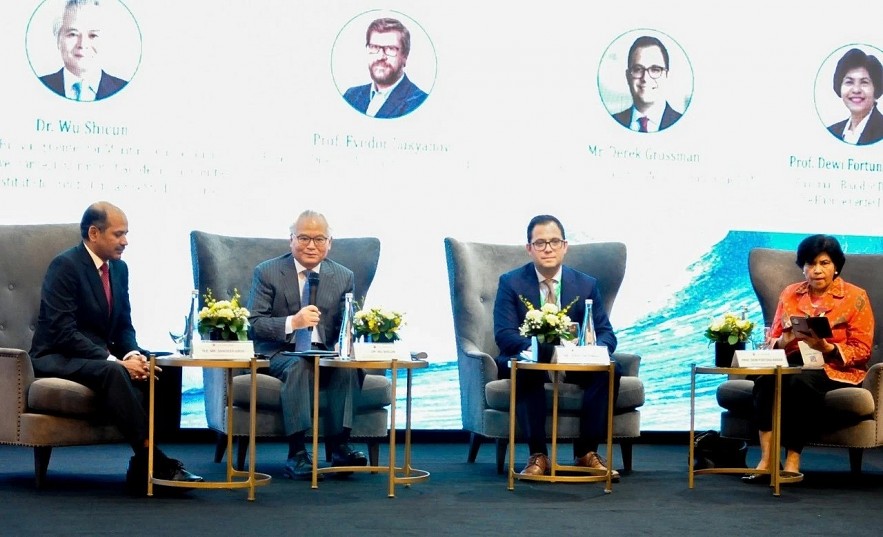 |
| Professor Dewi Fortuna Anwar (far right) attended the second session of the 16th International Conference on the South China Sea. Photo: PH. |
Assessing what is happening in the South China Sea, I believe this is not an open conflict but also not a true peace, so using the term "hot peace" in the South China Sea is appropriate. In this context, we want to ensure that ASEAN does not face conflict in the region, therefore, I expect ASEAN's vision for the Indo-Pacific to be more comprehensive, based on ASEAN's norms and values within the framework of the Treaty of Amity and Cooperation in Southeast Asia, promoting peaceful coexistence, ASEAN's strategic autonomy, and maintaining its central role.
How do you assess the importance of dialogue in promoting peace and stability in the South China Sea? Dialogue has always been our traditional approach to managing disagreements. Are there any additional things we need to pay attention to now?
I believe that dialogue is extremely important because it can build trust. We may not agree on some principles, but what we have is a friendly atmosphere and the belief that we can continue to cooperate with each other to restrain actions that could lead to conflict.
That is why ASEAN wants to promote a way to ensure dialogue and cooperation, where we can exchange views, even disagreements, but all agree not to use or threaten to use force, and whenever there is a conflict, it must be resolved peacefully. Therefore, dialogue and cooperation beyond dialogue are the keys to peace and stability in the region.
How do you assess the potential for an early conclusion of the Code of Conduct in the South China Sea (COC) between ASEAN and China? Many scholars expect that by 2026 we will have a COC that meets the common aspirations.
We will have to work hard. ASEAN and China need to be serious about this issue based on common perspectives. Many people are pessimistic about the future of the COC when ASEAN countries emphasize the integrity of the 1982 United Nations Convention on the Law of the Sea (UNCLOS 1982) as the legal basis for the sea. Meanwhile, although a party to UNCLOS 1982, China claims sovereignty over the South China Sea not based on UNCLOS, but on historical claims not recognized by UNCLOS. Furthermore, there are currently fundamental differences in views between ASEAN and China regarding the South China Sea.
However, the most important thing for the COC is a set of rules of conduct to ensure goodwill cooperation with ASEAN from China, support ASEAN's strategic autonomy and centrality, to ensure the prevention of unintended clashes and escalation of tensions. We have the right to hope but the result will not be just a matter of prayer, it can only be achieved through the efforts and political will of the parties.
Many people seem pessimistic about the value of the "constitution of the seas" - the 1982 United Nations Convention on the Law of the Sea (UNCLOS). What is your view?
UNCLOS is of utmost importance, especially in the context of many countries that seem to disregard UNCLOS. UNCLOS is currently the only basis for resolving territorial disputes and for delimiting boundaries in maritime areas. For archipelagic states like Indonesia, UNCLOS is truly the key to the country's development.
ASEAN is also consistent in respecting international law, the UN Charter, and UNCLOS in matters relating to maritime boundaries. Indonesia and Vietnam have also reached agreements within the framework of UNCLOS. While many countries may not have a unified interpretation of UNCLOS, all must acknowledge that this is the foremost international legal basis in the maritime field.
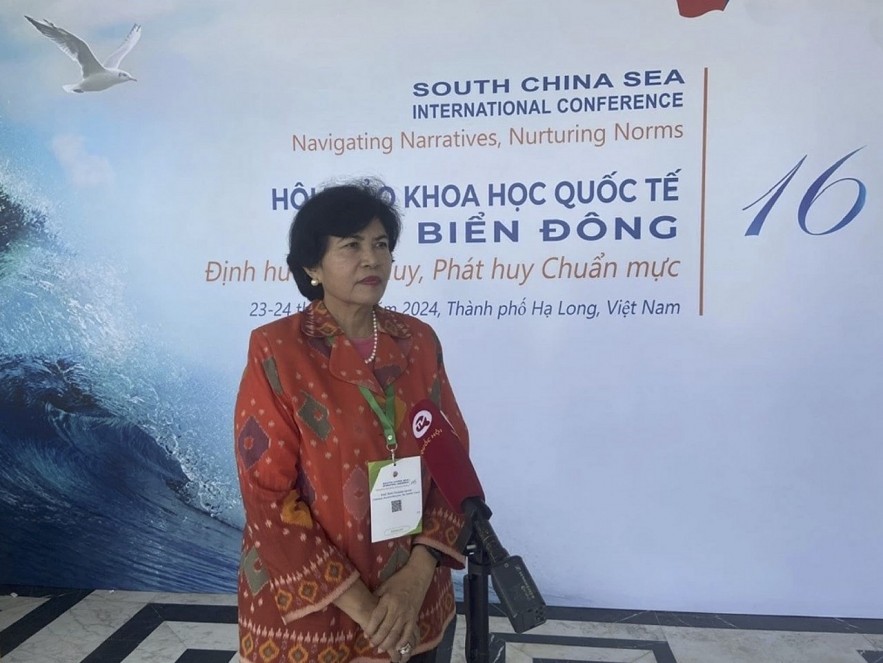 |
| Professor Dewi Fortuna Anwar, chair of the Board of Directors of The Habibie Center, Indonesia. |
How significant is maritime and aviation safety for development?
Clearly, not only ASEAN countries but also many other countries can use the shipping lanes in the South China Sea. Therefore, maritime and aviation safety in the South China Sea is of concern to many countries around the world. The South China Sea region is one of the most strategic and busiest sea areas, witnessing a lot of bustling international trade activities.
The development and prosperity of the global economy depend on the safety of maritime and aviation activities, measures to protect the marine environment, take care of fish stocks, climate change issues, and food security. Therefore, we need to consider the interests of different purposes in the South China Sea.
 | Global Vietnamese Youth Keeps Language Alive "Trong tranh" or"chong chanh", which is the correct spelling? What does the proverb "Wealth in the eyes, dearth in the hands" mean? Though simple, these ... |
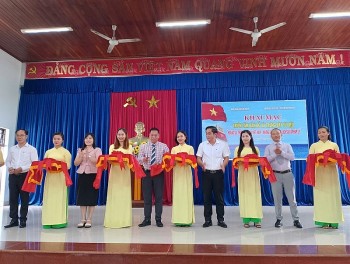 | Quang Nam Hosts Exhibition on Hoang Sa, Truong Sa On October 15, the Quang Nam Provincial Museum in collaboration with the People's Committee of Duy Hai Commune (Duy Xuyen District, Quang Nam Province) held ... |
Recommended
 Seas and islands
Seas and islands
RoK Navy Ship Pays Friendly Visit to Da Nang City
 Seas and islands
Seas and islands
Naval Region 5 Promotes Reading Culture, Fosters Patriotism
 Seas and islands
Seas and islands
Coast Guard Region 2 Command Hosts Philippine Coast Counterpart
 Seas and islands
Seas and islands
Vietnam - Thailand Navy: Coordination to Well Address Problems at Sea
 Seas and islands
Seas and islands
Honoring the Fallen: Incense Offering for the 37th Anniversary of Gac Ma
 Seas and islands
Seas and islands
Vietnam Coast Guard Expands International Cooperation for Maritime Security
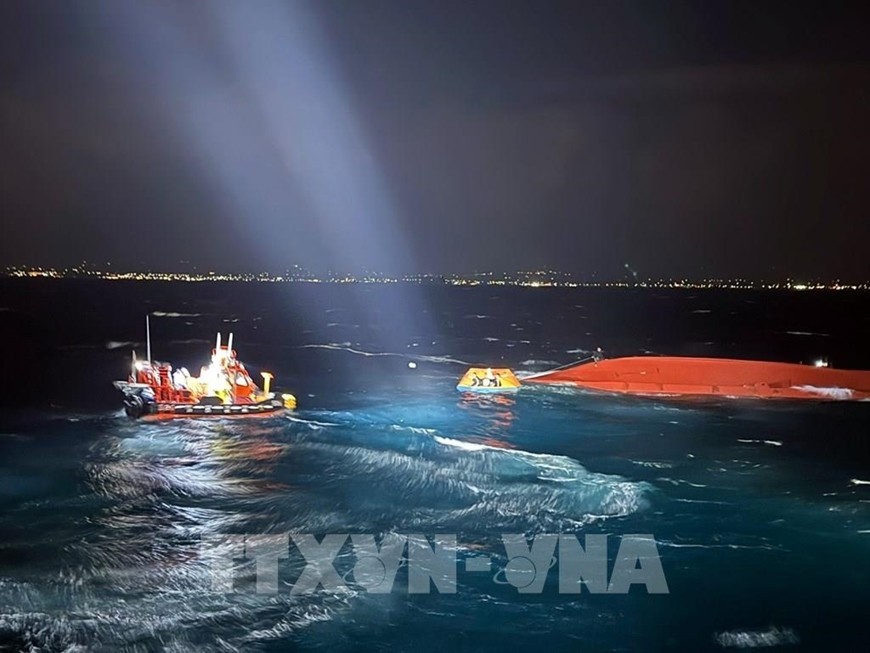 Seas and islands
Seas and islands
Three Vietnamese Fishermen Saved Off Jeju Coast
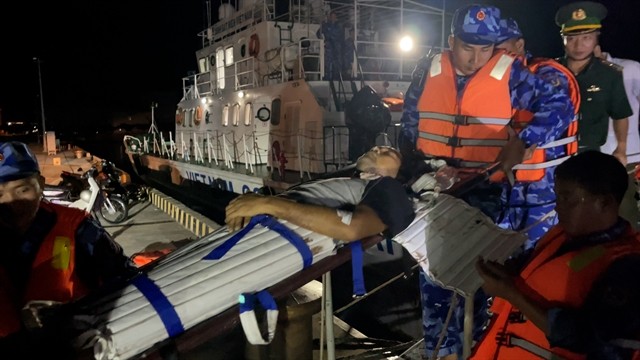 Seas and islands
Seas and islands


